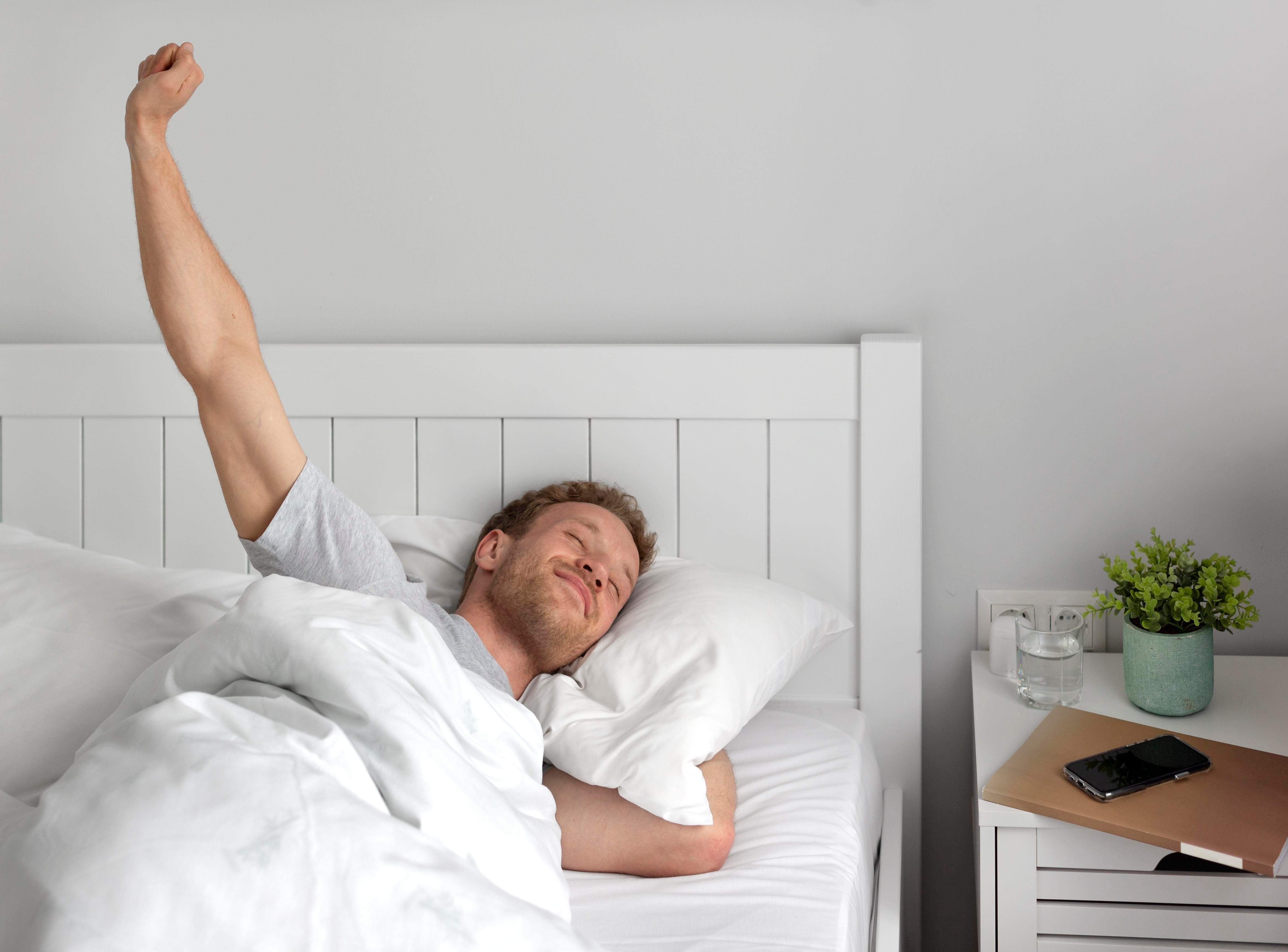Unlock the Power of Sleep for Brain Health & Energy

Your Brain’s Secret Weapon for a Good Night’s Rest
We live in a fast-paced world, balancing demanding jobs, personal responsibilities, and constant digital stimulation. Sleep? It often becomes the first casualty. But here's the hard truth—sleep isn’t a luxury; it’s a non-negotiable if you want to stay sharp, healthy, and energized. And it’s not just about logging hours in bed—it’s about prepping your brain to achieve that elusive, high-quality sleep. Ready to unlock the secret to getting the rest you deserve?
Why Sleep Is the Ultimate Power Move
Think of sleep as the unsung hero behind your success. It’s when your brain consolidates memories, recharges your immune system, and restores hormone balance. Missing out on those precious 7-9 hours? You’re setting yourself up for more than just grogginess—hello, weight gain, diabetes, and even heart disease. Prioritising sleep isn’t just a nice-to-have; it’s a game-changer for a healthier, more productive life.
Let’s get real: preparing your brain for rest is key. Here’s how to hack your sleep prep like a pro:
1. Master Your Sleep Schedule
Consistency is the secret sauce. Your body runs on an internal clock—your circadian rhythm—and when you throw it off by sleeping in or staying up late, it messes with your brain’s ability to wind down. Stick to a set bedtime and wake-up time, even on weekends. It’ll help your body sync with its natural sleep-wake cycle, making it easier to crash at night.
2. Create a Ritual That Tells Your Brain: “Time to Unwind”
Your brain needs signals to slow down, so craft a bedtime routine that feels indulgent. Whether it’s reading, soaking in a warm bath, or chilling to some calming music, these activities let your brain know it’s time to transition into rest mode. Skip the Netflix binge or late-night Instagram scroll—the blue light from screens blocks melatonin, the hormone that tells your body it’s time to sleep.
3. Cut the Late-Night Stimulants
You wouldn’t hit the gym right before bed, so why pump your body with caffeine, nicotine, or alcohol? These sneaky substances disrupt your brain chemistry and keep you wired when you should be winding down. Heavy meals can also cause indigestion, so aim for a light dinner at least two hours before bed. Want to wake up feeling refreshed? Make that latte an afternoon treat.
4. Curate the Perfect Sleep Environment
Your bedroom should be a sleep sanctuary—cool, dark, and quiet. These conditions prime your brain to release melatonin and signal it’s time to rest. Upgrade your mattress, invest in quality pillows, and blackout curtains—because the right environment sets the stage for a good night’s sleep.
5. Ease Stress with Relaxation Techniques
Stress is a sleep killer, but relaxation techniques can work wonders for a busy mind. Deep breathing, meditation, or yoga all activate your body’s relaxation response, helping you drift into sleep with ease. Not into meditating? Try sound technology like SS+, designed to guide your brain into a peaceful state quickly. Let tech do the heavy lifting.
6. Ditch Daytime Naps (Unless You Really Need One)
We get it—sometimes you just need a quick recharge. But long naps can sabotage your night’s sleep. If you must nap, keep it short and sweet—20-30 minutes max. Otherwise, power through the day and focus on hitting your nightly sleep target.
7. Supercharge Sleep with Natural Supplements
In the hustle of daily life, supplements can be your secret weapon. The latest brain-focused sleep supplements, powered by natural flavonoids, work to boost your sleep quality while promoting overall mental vitality. Discover how these supplements can elevate your nightly rest and help you wake up ready to conquer the day.
Ready for Better Sleep? Let’s Make It Happen.
You deserve to wake up feeling refreshed, energized, and ready to tackle whatever the day throws your way. These brain-boosting sleep strategies can help you get there. If you’re still struggling despite your best efforts, don’t hesitate to reach out to us at The Vitalogy Project for personalised advice. Better sleep is within reach—you’ve got this!
Written by Dr Stan Rodski, for The Vitalogy Project, Cognitive Neuroscientist, Researcher and Author.
Find out more about our Sleep Health supplement.
References
1. "Sleep Deprivation and Deficiency." National Heart, Lung, and Blood Institute. (2017). Retrieved from https://www.nhlbi.nih.gov/health-topics/sleep-deprivation-and-deficiency
2. "Healthy Sleep Tips." National Sleep Foundation. (n.d.). Retrieved from https://www.sleepfoundation.org/articles/healthy-sleep-tips 3. “The Neuroscience of Excellent Sleep.” S. Rodski. Sc(D).,Harper Collins.(2023).



